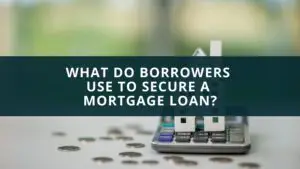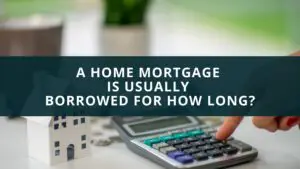
When you invest your hard-earned money in any property, you want to start seeing a return on your investment as soon as possible. And while there are several ways to do that, renting out is perhaps the quickest and most common. However, renting out a house you just bought isn’t as straightforward as it might seem if you financed it, and getting things wrong may cause run-ins with the law.
Realistically speaking, whether you can buy a house and rent it straight away without committing mortgage fraud depends on two factors. First, the terms of your mortgage contract and second, your lender’s willingness to let you refinance or switch from a residential to a buy to let mortgage.
In the rest of this post, I’ll explore in detail how these two factors dictate your ability to rent out property you just bought. We’ll also take a look at some of the things you can do when financing a house to avoid restrictions when you decide to rent it out, so be sure to stick around to the very end. Let’s get on with it, shall we?
Quick navigation
The Terms and Conditions of the Mortgage Agreement
Your mortgage contract is the most important determinant of whether you can rent out a property you just bought. Typically, mortgage contracts come with terms and conditions that the borrower must adhere to, and these are usually individual-specific. That is, they’re drafted according to the borrower’s financial situation, intended fund use, among other factors.
Depending on the nature of your deal, some clauses may require you to live in the house for a certain period before renting out. If you rent out your house before this period elapses, you would be committing mortgage fraud, which is prosecutable under the Fraud Enforcement and Recovery Act of 2009. Such a move may also prompt the lender to call the loan “all due and payable.”
Normally, when a mortgage contract requires you to live in your property for a specified period (usually one or two years, maybe more depending on the lender), it’s because you’re listed as the “Primary Resident.” What this means is that when you were getting evaluated for the mortgage, you claimed that you intend to live in the property as opposed to renting it out.
If you’re listed as the primary resident in your mortgage agreement, chances are you can’t rent out a house you just bought without committing mortgage fraud. You’ll have to live in it for the period prescribed by your mortgage contract.
Lenders usually enact such restrictions because the terms for rental mortgages are never the same as those for residential mortgages. Hypothetically speaking, if you were to buy the same house under both types of loans, a rental mortgage would be more expensive in that:
- It would require a higher down payment (20% minimum).
- You’d be charged a higher interest rate.
- You’d probably pay more in the form of a loan origination fee.
So by renting out a property funded with a residential mortgage straight away, you’d be committing fraud since you evaded the above costs by listing as the primary resident.
Your Lender’s Willingness to Let You Switch From a Residential to a Buy to Let Mortgage/Refinance
If you’re determined not to wait several years before letting a house you initially funded with a residential mortgage, there’s a possible workaround: switching to a buy to let mortgage. This is common practice in the housing industry, but it largely hinges on your lender’s consent and other factors such as:
- The type of your current mortgage.
- How you plan to use the property
- The terms and conditions of your existing mortgage
- The kind of other mortgages you have, if any.
- Your long term living arrangements
If your lender declines your request to make this switch, your only other option might be to remortgage with a different lender. Should you choose to pursue this option, keep in mind that it might come with early redemption penalties from your existing lender. This fee isn’t universal to all mortgages, so you might want the terms in your contract before you proceed. If it applies to your mortgage, it’ll likely be 1% to 5% of the value of the early repayment.
If your lender approves the switch, you’ll get new terms, possibly with a higher principal or interest. That’s because the lender needs to cushion themselves against late payments or any damage the property might sustain before the loan is fully repaid.
How to Ensure You Can Rent Out Your Property Straight Away Before Buying
Having looked at some of the ways a mortgage contract can limit your ability to rent out your property straight away, you’re probably thinking: What could I have done differently to avoid such restrictions?
Even if you aren’t regretting your decision to list as the primary resident, real estate investors rarely buy property once. Chances are you’ll be buying more property in the future, and when you do, you’ll want to be able to let straight away.
So, what can you do differently this time around?
Get the Right Type of Mortgage
By setting up your mortgage as a home investor loan from the very beginning, you get the right to let it straight away without having to live in it for several years.
While such a move might mean a more expensive package, it allows you to maximize your rental income because you can start earning right away, provided you get tenants. It also means you can immediately start enjoying the tax benefits of becoming a landlord. These include the option to claim tax deductions on things like:
- Property repairs and depreciation
- Insurance
- Fees charged for preparing tax returns
- Losses from thefts and natural disasters such as floods, earthquakes, floods, etc.
- Lawn care costs
- Expenses you might incur when traveling to collect rent
- Loan interest payments
Note that these are just the common examples of tax deductions landlords are often eligible for. To find out if you’re eligible for more deductions, consult with an accountant because everyone’s financial situation is different, and their tax burden hinges on that.
Choose a Flexible Lender
When it comes to having the freedom to do with your property as you please, choosing the right lender is equally important as selecting the right type of mortgage. Ideally, you’ll want to work with a lender who’s flexible enough to adjust the mortgage terms when your circumstances change.
In some instances, it might make more sense to initially finance a property with a residential and then switch to a buy to let mortgage. For instance, say you decide to live in the property for the required period (as per your residential mortgage terms) to take advantage of the capital gains concessions that come with listing as the primary resident. Once this period is over, you decide to make some money off your property by renting it out.
In such a case, you’ll need to notify your lender of your intention to rent and hope that they can accept a loan variation that allows your residential property to become an investment. With a flexible mortgage provider, this transition will be seamless, and chances are the new terms won’t be prohibitive.
Choosing a flexible lender also comes in handy when you decide to refinance your mortgage. In simple terms, this means paying an existing mortgage and then replacing it with one that suits your current financial situation. Property owners refinance for several reasons, most commonly to:
- Secure a lower interest rate
- Shorten their mortgage term
- Leverage their home equity to raise funds
- Switch from a fixed-rate mortgage to Adjustable-Rate Mortgage (ARM) and vice versa.
Whatever your motivation to refinance, you’ll want to have a flexible lender who makes this change as stress-free and inexpensive as possible. Ideally, they won’t demand prohibitive early redemption penalties and other related charges.
The Takeaway
As we’ve seen throughout this post, there are a lot of intricacies involved when you want to rent out a house you just bought.
In case you missed some of the important points, here’s the key takeaway: You can’t buy a house and rent it out straight away if you financed it with a residential mortgage. The only way to work around it would be to either switch to a buy to let mortgage or refinance, both of which largely depend on your lender’s consent.



